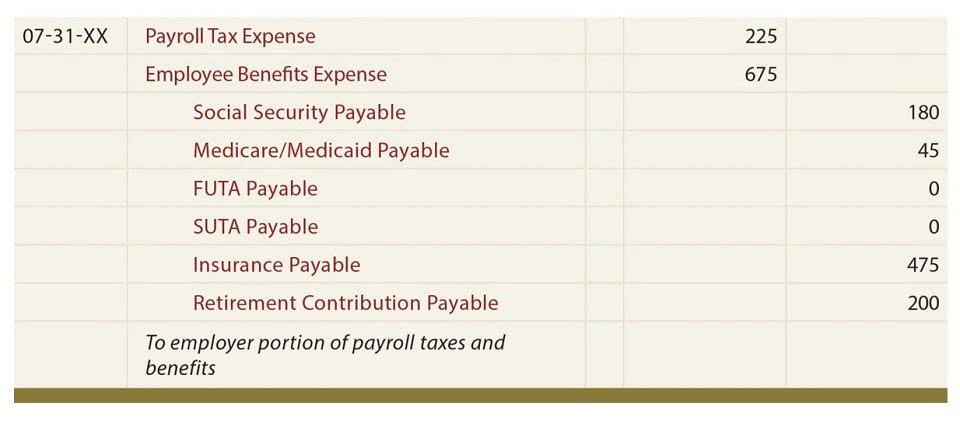
These regulations may vary across regions and industries, so it’s vital to research and grasp the specific requirements applicable to your organization. By helping automate the data flow within the statutory reporting process, total process costs can be significantly reduced. By utilizing the Workiva Global Statutory platform to tech-enable your statutory reporting process, PwC helps you attain visibility and improvement opportunities. Constantly changing regulatory frameworks requires companies to keep up with frequent changes, locally and globally. The complexity of these compliance requirements, across multiple jurisdictions, compounds the need for accuracy and timeliness, which can be a huge draw on resources, not to mention the risk of noncompliance.
- It entails providing important stakeholders, including external auditors, regulatory authorities, and investors, with reports and records that are legally necessary.
- The DAES (Department of Agriculture and Environmental Services) report typically contains statutory information related to agricultural practices, environmental regulations, and compliance metrics.
- Start by identifying the laws and regulations that mandate statutory reporting in your area.
- Once passed, statutes are compiled and organized by subject into the United States Code.
- Organisations must follow these requirements to comply with the law and avoid penalties or legal issues.
Understanding the Statutory Accounting Principles (SAP)
Different countries and regions have their own set of laws, regulations, and accounting standards that govern the reporting process. Organisations must comply with the reporting requirements applicable to their jurisdiction to ensure legal compliance and avoid potential penalties or legal consequences. The specific requirements for reporting depend on the jurisdiction in which an organization operates.
Find the right solution
For example, if your reports are late or irregular, your financial planning cycle is handicapped. Forecasts are based on uncertain actuals, and executive decision-making is reactive rather than proactive. It is particularly useful in group structures where differences in timing between local statutory closings and group consolidation cause version chaos. For instance, JGL Pharma, a global pharma firm, saved 50% of its market consolidation preparation time and put an end to version mismatches what is statutory reporting by transitioning from Excel to an automated planning solution. By using Farseer, their entire statutory process was accelerated, simplified, and audit-ready. As legislation becomes more and more sophisticated, finance operations must recast the way they manage reporting obligations by entity, geography, and standard.
Significance in Financial Reporting
The NAIC’s influence extends beyond the insurance industry, affecting any business that must comply with statutory accounting standards. By providing a robust regulatory framework, the NAIC helps ensure that companies remain solvent and capable of meeting their financial obligations. The next step is to collect and organise the necessary financial and non-financial data to be included in the reports.
Strategic impact on planning and investor trust

In contrast, GAAP emphasizes a more comprehensive view of financial performance, allowing for a wider range of asset and liability valuations. The difference between GAAP and Statutory Accounting Is that GAAP is followed to provide useful insights to investors and shareholders for Suspense Account researching a company’s financial health. On the other hand, Statutory Accounting Principles target insurance companies’ solvency-based accounting methods.
Regulatory Reporting Vs. Statutory Reporting

Defining statutory accounting principles is the first step toward understanding their application Online Accounting and significance in financial reporting. SSAPs provide detailed instructions on various accounting practices, from asset valuation to revenue recognition. They serve as the foundation for statutory financial statements, ensuring that all companies adhere to the same standards. Companies can build stakeholder trust and free up time for more strategic tasks by taking proactive measures to address statutory reporting problems.

We tailor our statutory reporting approach to your company’s most urgent priorities. Our suite of offerings can help you address a broad range of needs and scenarios. Statutory Accounting Principles (SAP) are accounting rules that are used for an insurance firm’s financial statements.
- The main focus of GAAP is for financial statements to show the financial performance of the company in a comparable manner.
- It also offers full audit trails and traceable activity, even in sophisticated group structures.
- Failure to comply can lead to delayed filings, hefty penalties, and operational disruptions.
- GAAP works on the assumption that the business will continue trading past the period covered by the accounts.
- A statutory audit is an independent examination of a company’s financial records conducted by external auditors to verify that financial statements are accurate and comply with applicable laws and regulations.
- In addition to financial reporting, insurers must comply with various regulations set forth by bodies such as the National Association of Insurance Commissioners (NAIC) in the U.S.
- Each country and region has its own laws and accounting standards that guide the reporting process.
- They assure stakeholders that the information is accurate and has been carefully reviewed by professionals.
- Regulatory bodies, such as state insurance departments, impose fines and sanctions on organizations that fail to comply with required reporting standards.
- However, the bank has improved its internal control to ensure that it keeps up with the requirements of the US GAAP regulations.
- These regulations are designed to ensure that insurance companies operate transparently and responsibly, safeguarding both policyholders and the economy at large.
- It therefore gives the company the benefit of time in addressing and mitigating a potential public outcry when the data is reported.
Generate ICAI-compliant financial statements for non-corporates using the Excel template. Deloitte AG is an affiliate of Deloitte NSE LLP, a member firm of Deloitte Touche Tohmatsu Limited, a UK private company limited by guarantee (“DTTL”). Please see About Deloitte for a more detailed description of DTTL and its member firms. Yes there are no laws for dating just regarding sex where youhave to have reached the age of consent or the adult will be guiltyof statutory rape.
